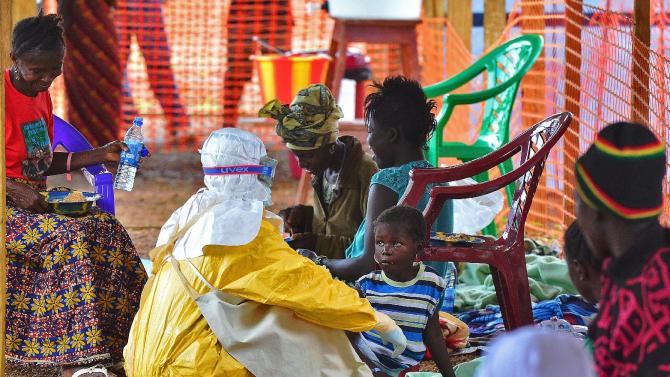 |
| Stanley Seyonkon working at a hospital in Buchanan, Liberia. |
In thinking back to what happened with the deadly outbreak that cost so many lives, let's take a look at one of the nurses who served on the frontlines. Stanley Seyonkon, age 41, is not only a nurse, but also a survivor of the disease. Prior to providing direct care, he received infection prevention and control training (IPC), particularly addressing the concerns regarding ebola, offered by Liberia's Ministry of Health and then supplementary monthly trainings provided by JHPIEGO, an affiliate of Johns Hopkins University.
Mr. Seyonkon discussed how he became a nurse, "I am a registered nurse - I became one in 2013 because I like caring for people and serving humanity. Before that, I owned my own drugstore, but I wanted to help more people, so I left my business behind."
Only a year after entering practice, Mr. Seyonkon was confronted with the ebola outbreak in 2014. Why did he stay and treat people? For that matter, why does any nurse take that risk? He said, "Working in the clinic was very, very sad. But we needed to help people survive. That is why I took the risk. The hardest part of working was to see people dying and crying out for help....Many were leaving nursing at the time because they were scared of getting infected. I decided to take the risk."
Despite his training, Mr. Seyonkon still became sick. He talked about how he thought it happened, "There was a patient that came from Margibi County....She tested positive for ebola, and when I went to care for her, she had vomited, and I tried to help her get out of the pool of vomit. Two days later, I started to feel sick. I believe I got infected while taking the personal protective equipment off."
People who contract ebola become severely ill. There is no guarantee of recovery, but Stanley did recover. Subsequently, he and his family were avoided for a time, because of the stigma attached to the illness. But he credits psychosocial support from other health care workers and being able to talk to other survivors as being helpful. There was also the education about the disease that was provided by the government that helped reduce the stigma. Generalized joint pain throughout his entire body is one of the lingering effects that he still experiences.
 |
| Health care workers had to suit up from head to toe in protective clothing. |
 |
| It's such a tiny virus that causes a severe and deadly illness. |


No comments:
Post a Comment